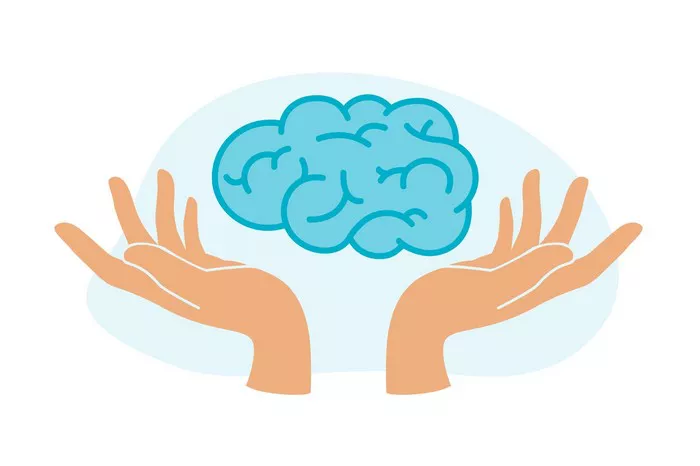In an era dominated by digital screens, the simple act of reading a book might seem like a quaint relic of the past. Yet, this timeless activity offers profound benefits beyond mere entertainment or information gathering. For many, reading is a tool for improving mental health, providing a unique combination of escapism, tranquility, and perspective that can alleviate symptoms of various psychological conditions. This article explores the myriad ways in which engaging with literature can foster mental well-being, backed by scientific research and psychological theories.
Understanding the Mental Health Benefits of Reading
Reading is not just an act of decoding symbols on a page; it is an immersive experience that involves complex cognitive and emotional processes. Engaging with a text can stimulate mental pathways, evoke emotions, and provoke thoughts, which altogether contribute to its mental health benefits.
Cognitive Stimulation and Mental Agility
Reading regularly exercises the brain in a way that can enhance cognitive reserve—the mind’s resilience to damage or deterioration. Engaging with complex narratives or challenging texts can improve brain connectivity, enhance vocabulary, and boost overall cognitive function, which are essential for long-term mental health.
Stress Reduction and Relaxation
One of the most immediate benefits of reading is its ability to distract and relax the mind. According to a 2009 study by the University of Sussex, reading can reduce stress by up to 68%, outperforming other relaxation methods like listening to music or drinking tea. Immersing oneself in a book provides a temporary escape from reality, allowing individuals to relax and de-stress.
Emotional Intelligence and Empathy
Literature, especially fiction, offers a unique opportunity to experience the world through the eyes of another. This can develop a reader’s capacity for empathy, making it easier to understand and share the feelings of others. Enhanced empathy can improve interpersonal relationships and overall social interaction, which are crucial for good mental health.
Building Resilience and Perspective
Reading about characters who overcome obstacles can serve as a source of motivation and inspiration. It helps build resilience by showing that adversity can be overcome. Moreover, literature can provide new perspectives and coping strategies, aiding in personal growth and emotional resilience.
Incorporating Reading into Mental Health Strategies
While the act of reading is simple, integrating it effectively into a mental health strategy requires consideration of personal interests, lifestyle, and specific mental health needs. Below are strategies to incorporate reading for mental health improvement:
Choosing the Right Material
Selecting Genres and Books
The choice of reading material can significantly impact its mental health benefits. While fiction offers great escapism and emotional empathy, non-fiction can provide practical advice, self-help strategies, and educational value. Poetry can evoke deep emotional responses and provide a cathartic experience. It’s important to choose genres and books that resonate on a personal level.
Establishing a Reading Routine
Creating a Reading Habit
Consistency is key in harnessing the mental health benefits of reading. Setting aside specific times for reading can help establish a routine, making it a regular part of stress relief and self-care practices.
Reading as a Mindful Exercise
Mindful Reading Practices
Reading can be a form of mindfulness if done with full engagement. This involves reading slowly, absorbing every word, and fully immersing oneself in the experience, which can enhance the therapeutic effects by promoting a present state of mind.
Therapeutic Reading Programs
Bibliotherapy
Bibliotherapy involves using books as a therapeutic tool. It can be guided by a therapist who recommends books that address specific conditions or themes that the patient is experiencing. Bibliotherapy can be an effective complement to traditional therapy, providing insights and promoting healing through literature.
Supportive Reading Groups
Joining a book club or a reading group can provide social support, enhance understanding through discussion, and encourage the consistent practice of reading. These groups can also help alleviate feelings of isolation by connecting individuals with like-minded peers.
Digital Detox Through Reading
In the digital age, where screen time is high, reading physical books can offer a much-needed break for the eyes and the mind. This digital detox can help reduce the mental fatigue associated with prolonged use of electronic devices, contributing to better mental health.
Research and Case Studies Supporting Reading for Mental Health
Numerous studies have underscored the benefits of reading for mental health. For instance, a study conducted by Yale University researchers found that individuals who read books regularly had a 20% lower risk of dying over the next 12 years compared with non-readers. Furthermore, reading has been associated with a lower incidence of dementia and improved longevity.
Challenges and Considerations in Promoting Reading for Mental Health
While the benefits are clear, promoting reading in today’s fast-paced, technology-driven world poses challenges. Accessibility to quality literature, especially for underprivileged communities, and the struggle to engage with traditional reading in the digital era are significant hurdles.
Conclusion: Cultivating a Culture of Reading for Mental Well-being
The benefits of reading extend well beyond basic literacy. As a tool for improving mental health, reading not only enriches the mind but also soothes the soul, fosters empathy, and builds resilience. By incorporating reading into regular mental health practices, individuals can enjoy a range of therapeutic benefits that help manage stress, enhance emotional well-being, and maintain cognitive health throughout life. As we continue to understand and embrace these benefits, it is crucial to promote a culture of reading that supports mental wellness for all ages and backgrounds.
[inline_related_posts title=”You Might Be Interested In” title_align=”left” style=”list” number=”6″ align=”none” ids=”7755,7752,7746″ by=”categories” orderby=”rand” order=”DESC” hide_thumb=”no” thumb_right=”no” views=”no” date=”yes” grid_columns=”2″ post_type=”” tax=””]

































